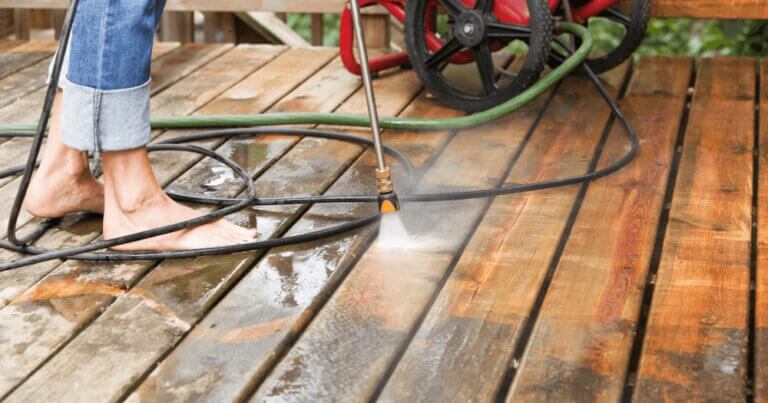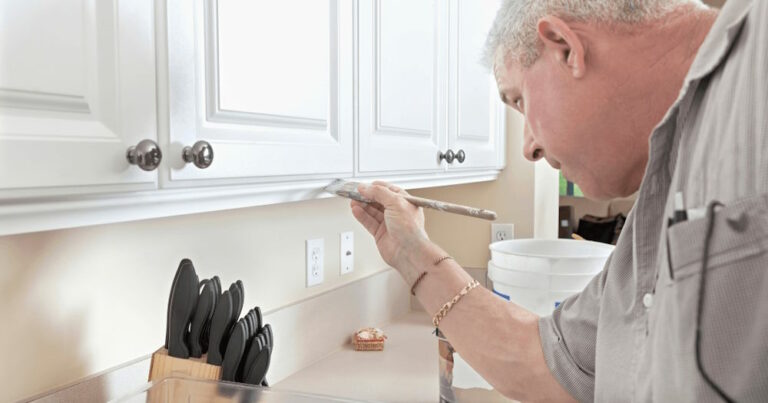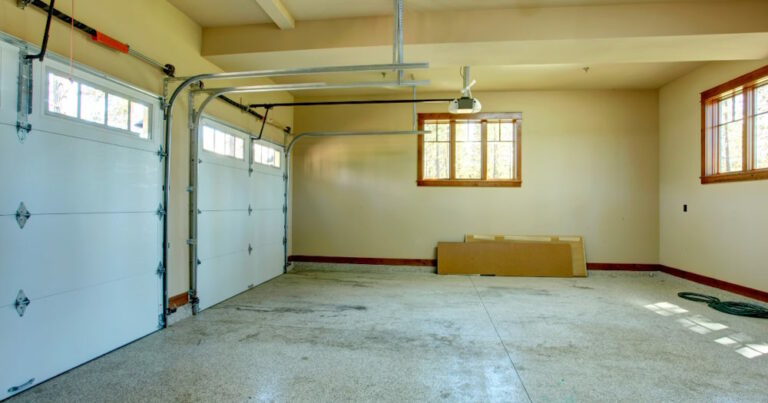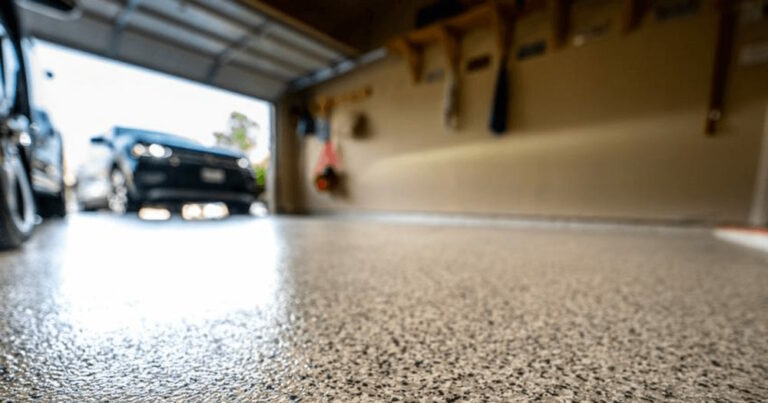Are you considering installing epoxy flooring but unsure of the cost? Epoxy flooring is a popular choice for its durability, easy maintenance, and sleek appearance. However, the cost of installation can vary depending on different factors.
In this comprehensive guide, we will explore all the aspects that affect the cost of epoxy flooring. By the end of this article, you will have a better understanding of what to expect regarding pricing, the factors that influence the cost, and how to get the best value for your investment without compromising on quality or style.
Key Takeaways:
- Epoxy floor cost varies based on several factors
- Square footage, preparation requirements, material quality, customization options, labor costs, and maintenance are key factors that determine the price
- Epoxy coating provides customization options, durability, and longevity
- Hiring professional contractors is important for successful installation and maintenance
- Comparing epoxy flooring costs to other flooring options can help you make an informed decision
Factors Affecting Epoxy Flooring Cost

When it comes to choosing epoxy floors for your home or business, cost is a critical factor. While epoxy flooring can be a cost-effective and durable solution in the long run, understanding the various factors that impact its pricing is crucial. Below are some of the primary factors that influence epoxy flooring cost:
Square Foot and Size Considerations
The size of the area to be covered with epoxy floor coating is a significant determinant of cost. Generally, larger spaces require more materials and time to install, resulting in higher costs. It’s crucial to measure and estimate the required coverage accurately to avoid overbuying or underestimating.
Preparation Requirements and Surface Condition
Proper surface preparation is key to a successful epoxy flooring installation. If the surface isn’t adequately prepared, you may encounter problems like peeling or bubbling, which can lead to costly repairs. Factors that affect preparation requirements and the overall cost include any imperfections that need repairing, the level of cleaning and priming necessary, and the substrate type.
Material Quality and Types of Epoxy Flooring
The type and quality of epoxy flooring material can significantly affect the cost. There are many types of epoxy flooring available, and each has unique features, advantages, and disadvantages. Solid epoxy, for example, is a cost-effective option, but it’s typically not the most durable. Self-leveling epoxy and epoxy flake systems offer superior durability but come with a higher price tag.
Additional Customization and Design Options
Epoxy flooring allows for a range of customization and design possibilities, including color choices, patterns, textures, and decorative elements. However, adding these options can increase the total cost, so it’s essential to consider your budget and preferences when choosing customization options.
Labor Costs and Professional Installation
Hiring professionals for epoxy flooring installation ensures a high-quality finish, but it also adds to the overall cost. Labor costs can vary depending on factors such as the complexity of the project, the number of workers required, and the duration of the installation.
Maintenance and Lifespan Considerations
Epoxy flooring is relatively low maintenance, but neglecting regular upkeep can lead to costly repairs down the line. It’s crucial to consider the long-term maintenance requirements and the expected lifespan of your epoxy flooring when evaluating the total cost.
Square Footage and Size Considerations
When it comes to determining the cost of epoxy flooring, one of the most significant factors to consider is the size of the space to be covered. The total square footage of the area will heavily influence the overall cost. While epoxy flooring is cost-effective, the larger the area, the higher the cost.
That said, it’s crucial to estimate the required coverage accurately. Here are some essential factors to consider when measuring the size of the space:
- Room dimensions: Measure the length and width of the room to determine the total square footage. Don’t forget to account for any nooks or crannies.
- Obstacles: Any obstacles or protrusions that can’t be covered, such as pipes, will reduce the total square footage. Ensure you exclude these areas from your measurements.
- Additional areas: Consider any additional areas that may need to be covered with epoxy flooring, such as closets or pantries. Ensure you include these areas in your measurements.
Once you have a good understanding of the square footage, you can use it to obtain an accurate cost estimate from your contractor. However, keep in mind that square footage is just one part of the equation when determining the final cost of your project.
Tip: When seeking estimates, be sure to provide as much information as possible, including the total square footage, any obstacles or unique features, and any customization options you may require.
Preparation Requirements and Surface Condition
Before installing an epoxy flooring system, proper surface preparation is crucial. This step determines how well the epoxy adheres to the surface, and ultimately, the longevity of the flooring.
The process typically involves cleaning the surface, repairing any cracks or imperfections, and applying a primer to ensure proper adhesion. These preparation requirements can add to the overall cost of the project, but they are essential for a successful installation.
The condition of the surface also affects the cost of preparation. A smooth concrete surface that is free of cracks and damage requires less preparation, resulting in lower labor costs. However, a surface that requires extensive repairs or has previous coatings that need removal may increase the cost of preparation.
Tip: It’s important to hire a professional for surface preparation to ensure the job is done correctly. They have the proper tools and expertise to handle any challenges that may arise during the process.
Material Quality and Types of Epoxy Flooring
When it comes to material quality, epoxy flooring can vary significantly in price. It’s essential to understand your options, the pros and cons, and how each type may impact the overall cost of your project.
Solid Epoxy
Solid epoxy is the most basic type of epoxy flooring and the most affordable. It’s a one-coat system, typically applied at a thickness of 2-3 millimeters. Solid epoxy is durable and offers excellent chemical resistance, making it a popular choice for commercial and industrial settings.
Self-Leveling Epoxy
Self-leveling epoxy is a pourable system that evens out on its own and is ideal for large spaces or uneven surfaces. It’s self-priming, making it a time-efficient option, and durable, but it comes at a higher price point than solid epoxy due to its additional layers of coating and labor.
Epoxy Flake Systems
Epoxy flake systems consist of a basecoat, a layer of color flakes, and a topcoat. These decorative systems offer a range of customization options and are best suited for areas where aesthetics are a priority, such as residential spaces, offices, and restaurants. Epoxy flake systems are more expensive than solid or self-leveling epoxy due to the additional materials and labor involved.
Keep in mind that the quality of the materials you choose will also impact the overall cost. High-quality epoxy materials can be more expensive upfront, but they often offer better durability and a longer lifespan, reducing the need for frequent repairs and replacement.
Additional Customization and Design Options
When it comes to epoxy flooring, customization options are practically limitless. You can create the perfect look for your space by choosing from a variety of colors, patterns, and textures to suit your aesthetic preferences and functional needs.
One popular option is metallic epoxy, which features a mix of metallic pigments to create a unique, glossy finish. This type of epoxy can be used to mimic the appearance of marble or granite, creating a luxurious feel without the high price tag.
Epoxy flake systems are another customizable option, providing a speckled finish that hides dirt and imperfections. With a range of color and flake size options, you can create a one-of-a-kind look that perfectly complements your space.
Texture and Finish Options
In addition to color and pattern choices, texture and finish are also important considerations when customizing your epoxy flooring. You can choose a smooth or glossy finish for a sleek and modern look, or opt for a non-slip texture to increase safety in areas prone to spills or moisture.
Epoxy flooring materials can also be customized with decorative elements, such as logos, images, or other designs. Adding your company or team logo to a commercial space, or incorporating a favorite sports team into a home gym, can create a unique and personalized touch.
Customization Costs
While customization options add to the overall cost of epoxy flooring, they also provide the opportunity to create a completely unique and personalized space. The cost of customization will depend on factors such as the type and complexity of the design, as well as the size of the area to be covered.
However, it’s important to note that customized epoxy flooring can add significant value to a space and is often well worth the investment. So, don’t be afraid to get creative and make your epoxy flooring truly your own!
Labor Costs and Professional Installation
While epoxy flooring is a cost-effective and durable choice for many homeowners and businesses, it’s important to secure professional installation to ensure a successful outcome. Hiring experts can also help you save time and money in the long run by avoiding mistakes and ensuring the best possible finish. But what factors affect labor costs, and how can you find reliable contractors who offer competitive pricing?
The size of your project is a significant factor that can impact labor costs, with larger areas requiring more manpower and time to complete. If you are working with a tight budget, consider breaking down the project into smaller sections that can be completed over time.
Project complexity can also affect labor costs, especially if significant preparation work is needed or if the project involves intricate designs or patterns. Discuss your specific requirements with potential contractors to determine how their expertise can affect pricing.
The experience of the contractor is also a crucial factor to consider, as more experienced professionals may charge higher rates. However, their expertise can save you money in the long run by ensuring a top-quality finish that lasts for years to come.
It’s essential to get multiple quotes from different contractors to compare pricing and ensure you are getting a fair deal. However, be wary of quotes that seem too good to be true, as they may indicate low-quality materials or lack of experience. Always choose a reputable contractor with a solid track record and customer reviews to ensure the best possible outcome.
Table: Labor Costs for Epoxy Flooring Installation
| Experience Level of Contractor | Average Labor Cost per Square Foot |
| New or Inexperienced | $2.50 – $4.00 |
| Experienced | $4.00 – $8.00 |
| Expert or Specialized | $8.00 – $12.00 |
As seen in the table above, the experience level of the contractor can significantly impact labor costs, with experts or specialized professionals charging up to $12.00 per square foot. However, their knowledge and skill can ensure a high-quality finish that may last for decades, making it a worthwhile investment in the long run.
Maintenance and Lifespan Considerations
Proper maintenance is essential to ensure the longevity of your epoxy flooring. While epoxy flooring is durable and resistant to many types of damage, it still requires proper care to maintain its appearance and integrity over time.
To keep your epoxy flooring looking its best, follow these essential maintenance steps:
- Clean up any spills immediately to prevent staining or damage to the surface.
- Sweep or vacuum regularly to remove dirt and debris.
- Use a non-abrasive cleaner and mop the floor as needed.
- Avoid using harsh chemicals or cleaners that can damage the epoxy surface.
Regular maintenance not only helps to maintain the appearance of your epoxy flooring, but it can also extend its lifespan. With proper care and maintenance, epoxy flooring can last for many years, providing a durable and long-lasting surface for your home or business.
Lifespan of Epoxy Flooring
The lifespan of your epoxy flooring can vary depending on several factors, including the quality of the materials used, the level of foot traffic and wear and tear, and the quality of the installation.
On average, a professionally installed epoxy floor can last anywhere from 10 to 20 years or more, depending on the conditions. Factors such as exposure to sunlight and extreme temperatures can also impact the lifespan of your epoxy flooring.
To ensure the longest lifespan possible for your epoxy flooring, it is essential to hire a professional installer and to follow the proper maintenance procedures.
Is Epoxy Flooring a Long-Term Investment?

While the upfront cost of epoxy flooring may be higher than some other types of flooring, its durability and longevity make it a long-term investment.
When compared to other types of flooring, such as carpet or hardwood, epoxy flooring requires less maintenance and is less likely to need replacing due to damage or wear and tear. This means that over time, epoxy flooring can actually be the more cost-effective choice.
Additionally, epoxy flooring can increase the value of your home or business, making it a smart investment for the future.
Pro Tip: Regular maintenance and care, along with proper installation by experts, ensure the maximum lifespan and return on your epoxy flooring investment.
Comparing Epoxy Flooring Costs to Other Flooring Options
When it comes to flooring options, epoxy is highly cost-effective in the long run. Let’s compare the average lifespan and maintenance requirements of epoxy flooring to other popular flooring materials in the table below:
| Flooring Type | Average Lifespan | Maintenance Requirements |
| Hardwood | 20-100 years | Regular cleaning, refinishing every 7-10 years |
| Tile | 25-50 years | Regular cleaning, occasional re-grouting or sealing |
| Carpet | 5-15 years | Regular vacuuming, annual deep cleaning, stains and wear and tear |
| Epoxy | 20-30 years | Regular cleaning, occasional waxing or reapplication of topcoat |
As you can see, while hardwood and tile may have longer lifespans, they require regular maintenance, including refinishing or re-grouting. Carpet has the shortest lifespan and is prone to stains and wear and tear, requiring frequent deep cleaning and replacement. Epoxy, on the other hand, has a lifespan comparable to hardwood and tile but with much lower maintenance requirements.
In addition to lower maintenance costs, epoxy flooring can also save you money on installation. While hardwood, tile, and carpet can require extensive subfloor preparation or specialized installation techniques, epoxy can be installed over existing concrete, reducing both material and labor costs.
Overall, when comparing the cost of epoxy flooring to other options, it’s clear that epoxy offers unmatched durability, minimal maintenance, and cost-effectiveness.
Conclusion
Congratulations on completing this comprehensive guide on epoxy flooring costs.
By now, you should have a better understanding of the various factors that can affect the overall pricing of epoxy flooring. It’s essential to consider your space requirements, surface preparation needs, material quality, customization options, labor costs, maintenance, and lifespan expectations when determining the best value for your investment.
Make an Informed Decision
When comparing epoxy flooring to other popular flooring options, such as hardwood, tile, or carpet, it’s critical to consider both short-term and long-term expenses. While epoxy flooring may require a more significant upfront investment, it offers benefits like durability, easy maintenance, and aesthetic versatility that can add value over time.
Hire Professionals for Quality Results
If you want to ensure a high-quality, professional-looking epoxy flooring finish, hiring experts is the best way to go. Despite the added labor costs, DIY or inexperienced installation can lead to mistakes that may end up costing more in the long run.
We hope this guide has provided valuable insights into the true cost of epoxy flooring and helped you make an informed decision.
Are you ready to revamp your floors? Canyon Painting is here to help! We have over 20 years of experience in epoxy flooring. Contact us today!
FAQ
How much does epoxy flooring cost?
The cost of epoxy flooring can vary depending on several factors. Factors such as square footage, preparation requirements, material quality, customization options, labor costs, and maintenance all play a role in determining the overall cost.
What factors can affect epoxy flooring cost?
There are several factors that can impact the cost of epoxy flooring. These factors include square footage, preparation requirements, material quality, customization options, labor costs, and maintenance.
How does square footage impact epoxy flooring cost?
Square footage is an important consideration when determining the cost of epoxy flooring. The size of the area to be covered will affect the amount of materials needed and the labor required, which can influence the overall cost.
What are the preparation requirements for epoxy flooring?
Proper surface preparation is crucial for a successful epoxy flooring installation. This may include cleaning the surface, repairing any cracks or imperfections, and applying primers. The preparation requirements can vary depending on the condition of the existing surface.
How does material quality affect epoxy flooring cost?
The type and quality of epoxy flooring material can impact the cost. Different types of epoxy flooring, such as solid epoxy, self-leveling epoxy, and epoxy flake systems, have varying costs. Higher-quality materials may also come at a higher price.
What customization options are available for epoxy flooring?
Epoxy flooring offers a range of customization and design options. These options may include choosing different colors, patterns, textures, and incorporating decorative elements. Customization choices can add to the overall cost of the project.
How do labor costs contribute to epoxy flooring cost?
Hiring professionals for epoxy flooring installation ensures a high-quality finish. Labor costs will depend on factors such as the size of the project, the complexity of the installation, and the reputation and expertise of the contractors. It is important to find reliable contractors who offer competitive pricing.
What should I consider regarding maintenance and lifespan of epoxy flooring?
Understanding the maintenance requirements and lifespan of epoxy flooring is important when considering its overall cost. Proper care and regular maintenance can help maximize durability and longevity. Neglecting maintenance or using improper cleaning methods can result in additional expenses in the long run.
How does epoxy flooring cost compare to other flooring options?
To evaluate the cost-effectiveness of epoxy flooring, it is helpful to compare it to other flooring options such as hardwood, tile, and carpet. Considering the long-term benefits and expenses associated with each choice can assist in making an informed decision.





